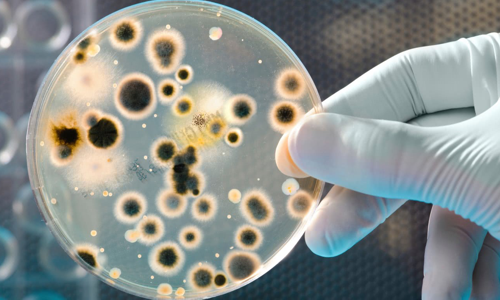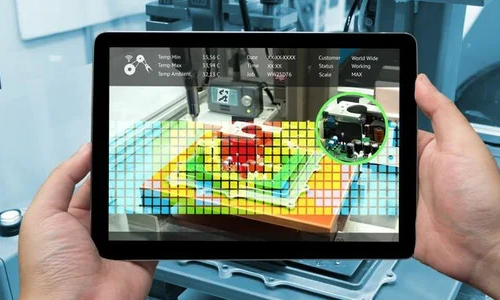ABOUT GO4WIPE

Born and raised in the Netherlands, one of the best cleaners on the market. Go4Wipe is a product of Milensa Engineering, a company that works progressively on new developments in the technology industry.
A lot of work has been done with imaging technology, which also means that products can be cleaned quickly and efficiently, which shortens production time.
Milensa soon discovered that the range did not meet expectations, which is why it was decided to develop a completely new cleaner in collaboration with a recognized laboratory.
The challenge was enormous, because it had to clean quickly, streak-free and safely. It must not loosen used adhesives for touch technologies or affect special coatings on glasses and screens. In addition, it must be an environmentally friendly product, and since Milensa supplies many products to, for example, the educational market, it must also be safe and child-friendly.
This was a success, an absolute winner!
Go4Wipe has been active in the business market for many years, such as various industries, offices, medical environments, schools and shops. From the Shell refinery to air traffic control at Schiphol, we have built up an extremely good reference database. Due to this success, Go4Wipe has recently also been available to consumers.
DOWNLOAD IMPORTANT INFORMATION
WHAT DO EXPERTS SAY?
-

HYGIENE OF ICT EQUIPMENT IN HOSPITALS
The keyboard, tablets and smartphones are a source of microorganisms. If this equipment contains pathogenic (disease-causing) micro-organisms, it may pose a potential risk to the health of patients if transferred. The hygiene of ICT equipment in hospitals is therefore an absolute must.
Hygiene of ICT equipment in Dutch hospitals
The use of ICT equipment in Dutch hospitals is still increasing. The so-called Computer On Wheels (COWs) have become indispensable. Tablets and smartphones are also increasingly used to make the core process of caring for the health of patients more efficient. On the other hand, in the absence of proper hygiene, this equipment can pose a risk to patient safety.
The state of hygiene of ICT equipment in hospitals is not optimal. This is evident from a study conducted by various infection prevention experts. 68 people participated in the study. More than 60% of respondents indicated that the IT equipment within their organization is cleaned, 40% indicated that they do not do this. Although a number of respondents do clean the equipment, it appears that the vast majority of the total number of participants in the survey (64%) do not consider the IT equipment within their organization to be clean enough. Of the respondents, 34% even indicated that the hygiene of ICT equipment needs improvement.
Source: mtintegraal.nl
-

PHONE ON THE TOILET
The majority (67%) of Dutch people only clean their phone if it is visibly dirty. Moreover, in that case they often only clean the screen (61%). Not very hygienic, when you consider that the vast majority even take this companion with them to the toilet (68.5%).
It is not just the mobile phone that is rarely cleaned. Only about half regularly clean their tablet (52%), landline phone (37%), keyboard (54%) and mouse (44%); once a month or more often. The vast majority of Dutch people (87%) believe that they wash their hands often enough, according to Essity's previously conducted Hygiene Matters survey. But that doesn't say everything about actual hand hygiene.
Gertie Eikenaar, communications director at Essity Benelux: "If you consider that people unlock their mobile phone on average about 100 times a day, you can imagine how many bacteria collect here. Even if your phone isn't visibly dirty, it could harbor millions of bacteria. You can wash your hands as often as you like, but if you don't clean your phone regularly it won't do much. Our research shows that people are still little aware of the mobile phone as a breeding ground for bacteria. Clean hands can largely prevent the spread of viruses in infections. That is why we want to put this topic on the map during Global Handwashing Day and make people aware of the importance of good hand hygiene, of which regularly disinfecting your phone is a crucial factor.”
Source:gezondheidenco.nl
-

BAD HYGIENE
The researchers state that the bacteria found do not necessarily have to be directly harmful to health. But it is a breeding ground for dangerous bacteria and is an indication of the owner's poor hygiene. For example, one mobile phone contained such a high concentration of potentially harmful bacteria that the user could experience serious stomach complaints.
Source: ikwilmobielwerken.nl
-

DISINFECTION OR CLEANING FOR (CORONA) VIRUS
Various parties advertise on social media with disinfection options to stop the virus.
Completely unnecessary, as is evident from Razenberg's response (Hans Razenberg is chairman of the NVZ): “Disinfecting makes no sense at all. A virus only survives for a short time outside the body of an infected person. “Additional disinfection is therefore not necessary, except at contact points such as sinks and door handles. It is also wise to pay extra attention to the keyboard. “But if you only work on your own keyboard, the problems are not that bad. What we should be afraid of are multi-resistant bacteria,” says Razenberg, who uses this opportunity to dispel a myth. “The media is buzzing that the use of disinfectants promotes the emergence of multi-resistant bacteria. This is not true. We must prevent these bacteria from having no source of nutrition.
So we have to clean well, because dirt is a source of nutrition. “Viruses do not survive in such food sources. They need a carrier such as a human or animal to survive. According to the RIVM, there are currently no indications that the virus is transmitted to animals. More information is important. Razenberg states that it is necessary to continue to provide information about (personal) hygiene and cleaning. “The coronavirus outbreak is just a pinprick. This virus has a high infection rate, but the number of deaths is so far not too bad. Although this is a hundred times higher than for 'normal' flu and there is no vaccine available. “The fastest gains can now be achieved by no longer shaking hands, being careful with sneezing and coughing and touching the face less often. “Because if an infected person sneezes on the table and you then touch it, there is a chance that you will become infected because you touch your nose or mouth. “Babysitting at home.
Finally, Razenberg states that employers realize that they have a duty of care and that this goes beyond the workplace. “Ensuring proper cleanliness and hygiene in the workplace is the least you can do. But bacteria and fungi are also dangerous at home. ”And with that, Razenberg wants to say: don't skimp on cleaning.
Source: cleantotaal.nl




